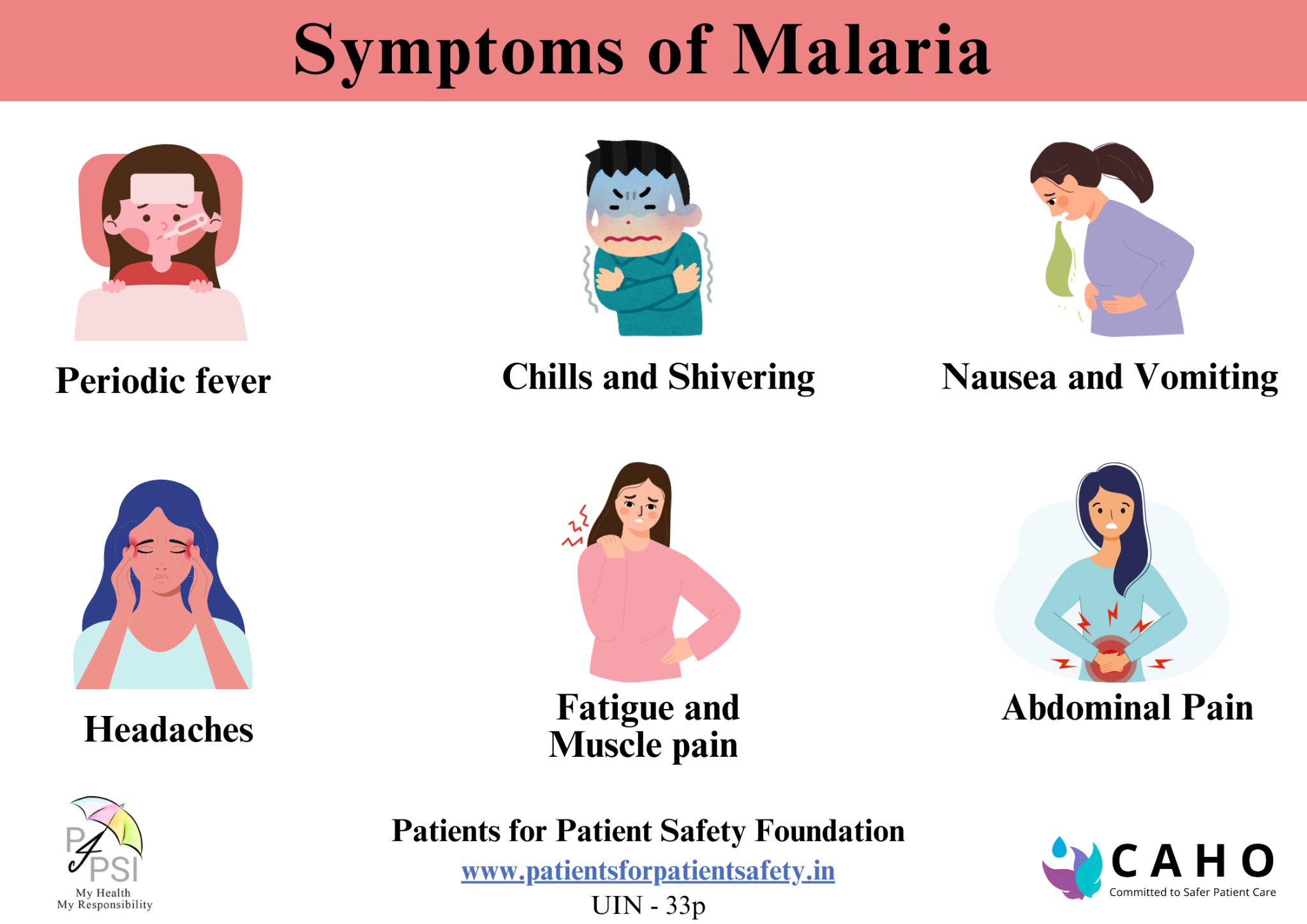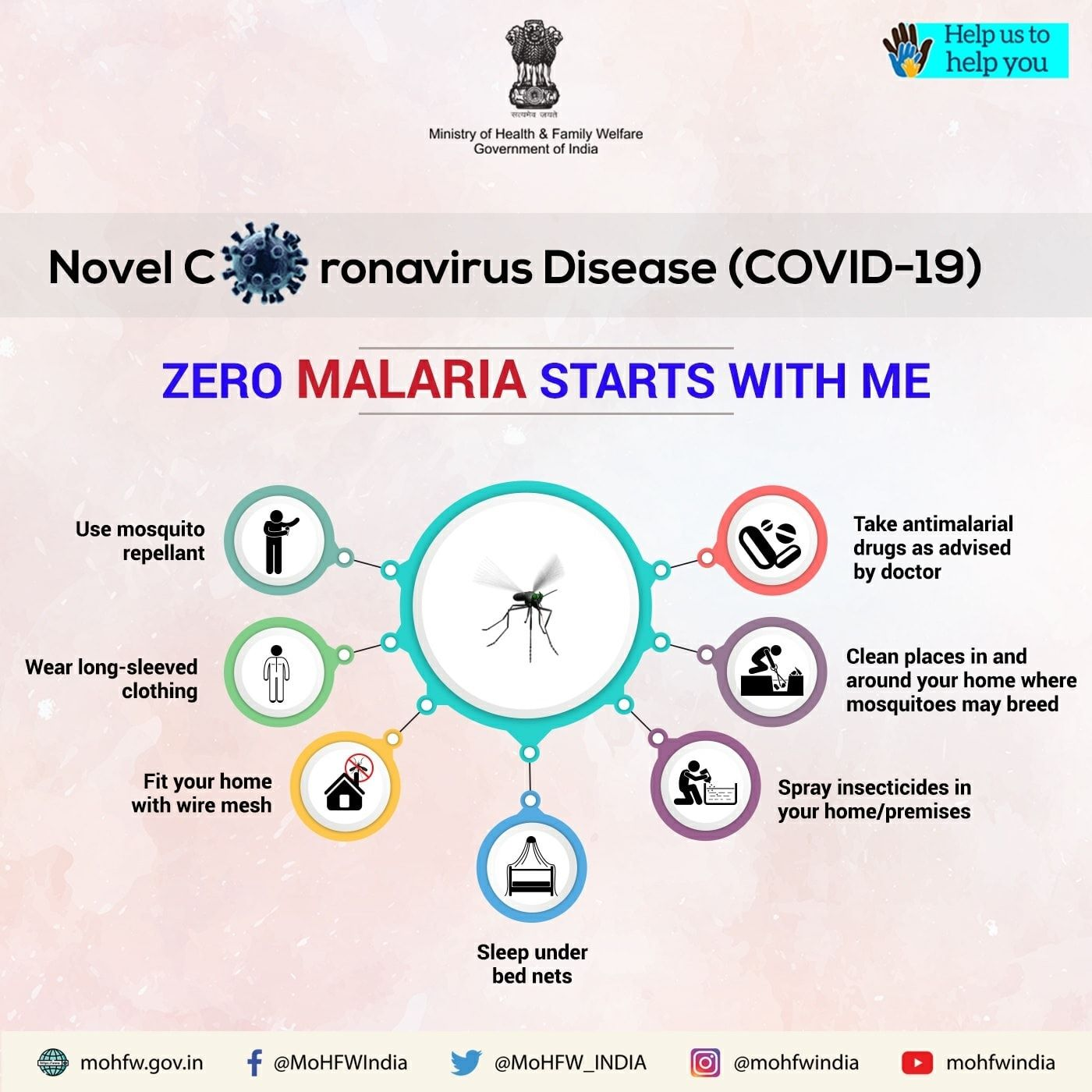
Understanding Malaria: Symptoms, Complications and Prevention
What is it:
Malaria is caused by parasites (Plasmodium genus) transmitted to humans through the bites of infected female Anopheles mosquitoes. After being bitten, a person usually gets sick in 10 to 14 days. Once inside the body, these parasites reproduce in the liver and invade red blood cells. This causes repeated episodes of fever,shivering, chills and flu-like symptoms as the parasites multiply in the blood. Periodically, the infected blood cells burst, releasing more parasites and continuing the cycle of sickness.
Symptoms of Malaria:

How to diagnose Malaria:
Malaria is diagnosed through a combination of clinical evaluation and laboratory tests including:
- Clinical evaluation to review symptoms, medical history and travel history (including recent visits to malaria-endemic areas).
- Blood smear test to identify the presence of specific malaria parasites. Its important to know the specific parasite to determine the right medication.
- Additional tests may be done if needed such as Rapid diagnostic tests, Polymerase Chain Reaction(PCR), Antibody detection blood tests, Complete blood count, Liver and Kidney function tests.
Treatment of Malaria:
Prompt treatment is critical for malaria to prevent its complications. Treating malaria effectively requires a combination of the following strategies:
- Antimalarial medications to control the parasite
- Supportive care includes staying hydrated, taking ample rest and eating a good diet
- Hospitalisation for those with severe symptoms
- Intensive care in some extreme cases
Several home remedies
can help manage symptoms and support recovery, but they are not substitutes for medical treatment. Always consult a healthcare professional for proper diagnosis and treatment of Malaria..
Complications of Malaria:
Malaria, while initially presenting with flu-like symptoms, and your recovery with treatment, can escalate into severe complications leading to organ failure and death, especially if left untreated. Complications include:
- Liver failure, manifesting with jaundice, a yellowing of the skin and eyes.
- Kidney failure, impairing the body's ability to filter waste and regulate fluids.
- Low blood glucose levels (Hypoglycemia) which may lead to seizures or coma.
- Enlargement and potential rupture of the spleen (Splenomegaly), risking internal bleeding.
- Shock, which includes a sudden and severe drop in blood pressure, threatens vital organ function.
- Pulmonary oedema, where fluid buildup in the lungs compromises breathing and oxygenation.
- Dehydration worsens the illness and complicates treatment.
Risk factors:
The primary risk factor is exposure to female Anopheles mosquitoes, which prefer to breed in stagnant water found in environments such as uncovered water storage containers, flower pots or discarded items that collect rainwater. Living or travelling in disease-prone areas without protection, being outdoors during peak mosquito times (dusk to dawn) and not using repellents. Children, the elderly and those with weakened immune systems are particularly vulnerable.
Prevention:
Preventing malaria requires reducing or eradicating mosquito breeding sites and implementing personal protective measures to avoid mosquito bites with the following steps:
- Remove stagnant water inside and surrounding the home.
- Sleep under a properly tucked mosquito net.
- Use insect repellent, and wear long-sleeved clothing.
- Take preventive antimalarial medication if travelling to malaria-prone areas.
- Avoid outdoor activities during peak mosquito-biting times (early morning and late afternoon).
- Install screens on doors and windows and use indoor insecticide sprays or coils.
- Encourage community mosquito control efforts like fogging and spraying.

By following these preventive measures, you can significantly reduce your risk of contracting malaria and protect yourself and your loved ones.
 Back
Back